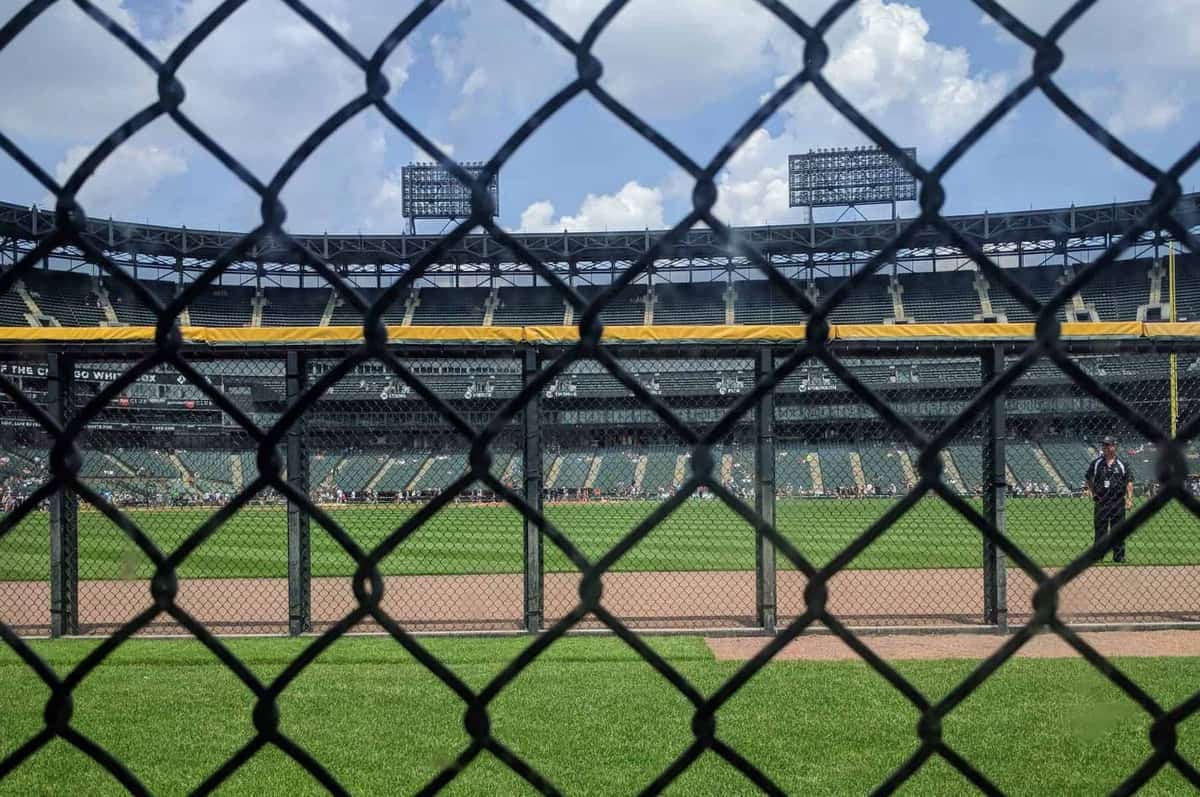Major League Baseball presented the Major League Baseball Players' Association four different proposals that all ended up paying them for 50something games of work. Rob Manfred has the power to implement a 50something-game schedule without the union's input. Manfred told ESPN that there will be a season this year, using terms such as "100 percent" and "unequivocally."
So the MLBPA told him to go ahead and implement that 50something-game schedule.
It's not quite calling his bluff, or telling him to put up or shut up. He got exposed along those lines, but he's not showing his hand. Also, he's not shutting up. I'm more picturing a guy frantically stacking unimposing items in front of a door in vain hopes of barring entry. Maybe it was after a bad poker game.
Suddenly, Manfred reversed his stance on the season, telling ESPN he was "not confident" a season could occur. It's easy to think that when one of the conditions for starting a season is making the union waive its right to file a grievance against the conditions. Also, the league threw out some anonymous COVID-19 cases that could gum up the works.
Granted, the coronavirus remains a huge concern, one I thought the union failed to take seriously with its initial proposal of a 114-game season that went into November. Dr. Anthony Fauci just said baseball should avoid playing into October. Then again, the league's initial offer attempted to pit members of the union against each other, so perhaps the players were staking out an equally ludicrous position.
A 50something game season may indeed be the best way to go from a public health perspective, as unsatisfying as that may be. Leading with public health would be a valid course, especially since the NBA is about to embark on its Orlando plan just as Orlando is dealing with a surge in COVID-19 cases. But nobody is leading with public health, and it doesn't boost confidence that MLB only raises the question when it needs a few weeks to stall.
(It needs a few weeks because if Major League Baseball implemented the 50-game season now, the union could file a grievance saying the league didn't attempt to negotiate a better offer, and owners are afraid of losing a billion or so in a settlement.)
Manfred looks clueless, especially in the face of an MLBPA that has a simple, straightforward message to fans ("Tell us when and where.") Granted, commissioners often look clueless when economic conditions fracture owners. Reporters have heard that some owners -- the number has ranged to six, eight or more -- would rather not play a season at all, as if playing baseball is harmful to a baseball team's business model.
Manfred just hadn't engendered much goodwill beforehand, from absolving Astros ownership in the cheating scandal to calling the trophy for the World Series winner "a piece of metal." That Manfred openly called the situation he's overseen "just a disaster for our game" suggests the job is too big for him, and it'll especially look that way if the league and union decide on a middle-ground scenario that could have been hammered out with straightforward willingness to exchange concessions, rather than a nonstop series of lame offers that only looked palatable because the league had leaked worse.
Reporters like Jeff Passan and Bob Nightengale are still confident a season will occur, one that's bigger than the bare minimum. Both took cues from Manfred using the clause "once we got to common ground on the idea that we were going to pay the players full prorated salary," which suggests a willingness to budge that wasn't reflected by any of the league's proposals.
Nightengale goes so far as to say:
There will be a season. It will start between July 20 to July 27, lasting at least 65 games, with a zany postseason that gives everyone a shot for a World Series title in a season that will be forever remembered, COVID-19 be damned.
I guarantee it.
But it didn't have to be this bad, and if it's indeed because 20 percent of the league's owners find staging the games financially inadvisable, it'd sure be nice to know who they are.






